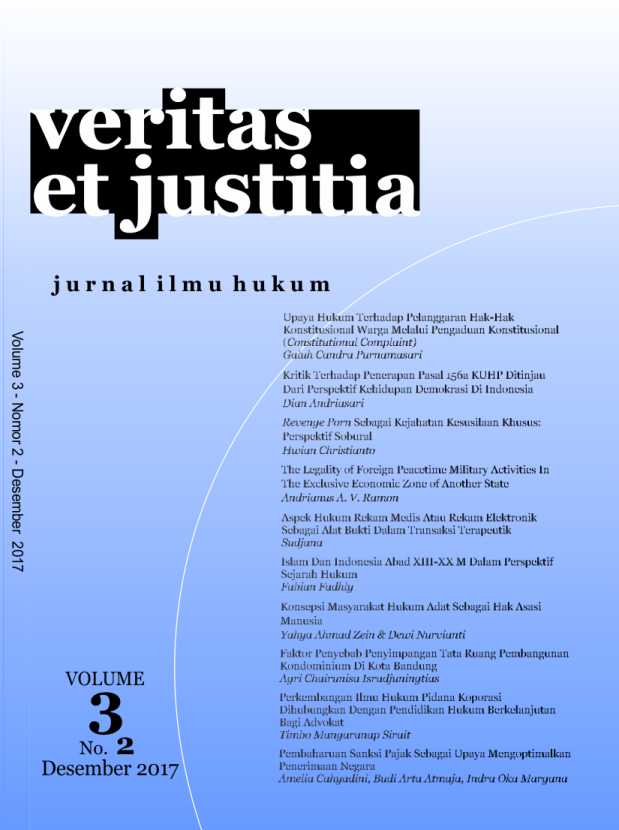THE LEGALITY OF STATE’S PEACETIME MILITARY ACTIVITIES
DOI:
https://doi.org/10.25123/vej.v3i2.2712Abstract
Abstract
The research argue that in the absence of an internationally negotiated provisions that explicitly regulate foreign peacetime military activities in the Exclusive Economic Zone (EEZ) of another States, States should consider the incident case per case as well as may employed the guideline prepared by highly reputed international legal scholars. This is essential to avoid unnecessary conflict between the Coastal State and the State conducting military activities in the EEZ. The aforementioned conclusion is reached by first analysing the definition of the peacetime military activities of the State. The research would also examine the negotiation process and its negotiated provisions of the United Nations Convention on the Law of the Sea (UNCLOS) 1982 resulted from the negotiation, regulating EEZ. Subsequently, the research would examining of the practice of the States interpreting the UNCLOS 1982’s EEZ provisions, including providing the options as an interim solutions for the void in the legal instruments in the matter.
Downloads
Published
Issue
Section
License
Authors who publish with this journal agree to the following terms:
Authors retain copyright and grant the journal right of first publication with the work simultaneously licensed under a Creative Commons Attribution License that allows others to share the work with an acknowledgement of the work's authorship and initial publication in this journal.
Authors are able to enter into separate, additional contractual arrangements for the non-exclusive distribution of the journal's published version of the work (e.g., post it to an institutional repository or publish it in a book), with an acknowledgement of its initial publication in this journal.
Authors are permitted and encouraged to post their work online (e.g., in institutional repositories or on their website) prior to and during the submission process, as it can lead to productive exchanges, as well as earlier and greater citation of published work.
The Journal allow the author(s) to hold the copyright and to retian publishing rights without restrictions.




